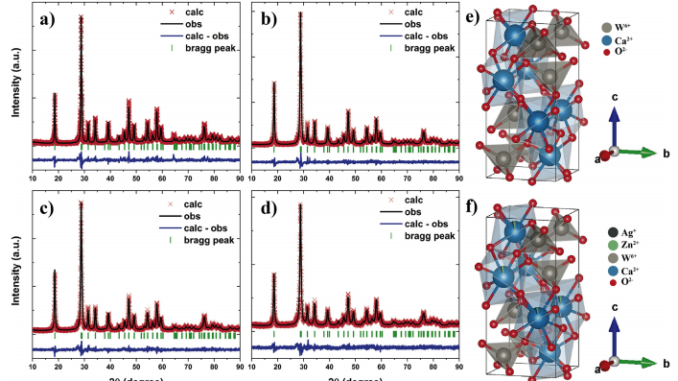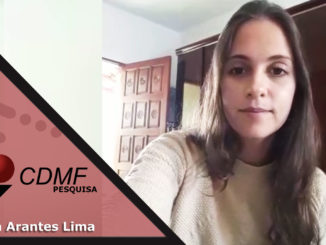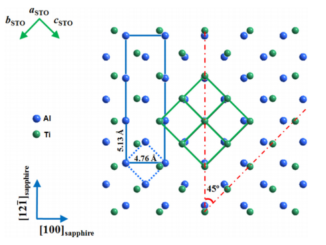
Synthesis and characterization of Agþ and Zn2þ co-doped CaWO4 nanoparticles by a fast and facile sonochemical method
Abstract: In this work, Agþ and Zn2þ co-doped CaWO4 nanoparticles were obtained by fast and facile sonochemical method. The nanoparticles were characterized by X-ray diffraction (XRD), Fourier transformed infrared spectroscopy (FTIR), Raman spectroscopy, scanning electron microscopy (SEM), transmission electron microscopy (TEM), visible ultraviolet spectroscopy (UVeVis) and photoluminescence property. The photocatalytic activity was studied against methylene blue (MB) dye under sunlight and CaWO4 powders were tested in 3 reuse cycles. The diffractograms indicate the non-formation of secondary phases and the Rietveld refinement estimated the crystallite sizes, being 27.38, 19.89, 18.70 and 16.39 nm for the pure, Ag, Zn and Ag:Zn samples, respectively. SEM and TEM images showed that the particles are agglomerated and have a mean diameter ranging from 16.76 (Ag:Zn) to 71.76 nm (pure). Defects generated by doping shift the gap band to higher energies and act to prevent electron/hole (e/hþ) pair recombination, reducing photoluminescence and favoring CaWO4 photocatalysis. Scavenger methodology indicated that hþ is the main mechanism acting in photocatalysis, and the reuse tests indicated that the silver-doped sample, even with the better initial response, loses efficiency over the course of the cycle, while the co-doped sample maintains efficiency, and is therefore indicated for reuse photocatalysis applications in methylene blue dye degradation.
Author(s): Neto, NFA; Dias, BP; Tranquilin, RL; Longo, E; Li, M; Bomio, MRD; Motta, FV
Journal of Alloys and Compounds
Published: 31 December 2019




